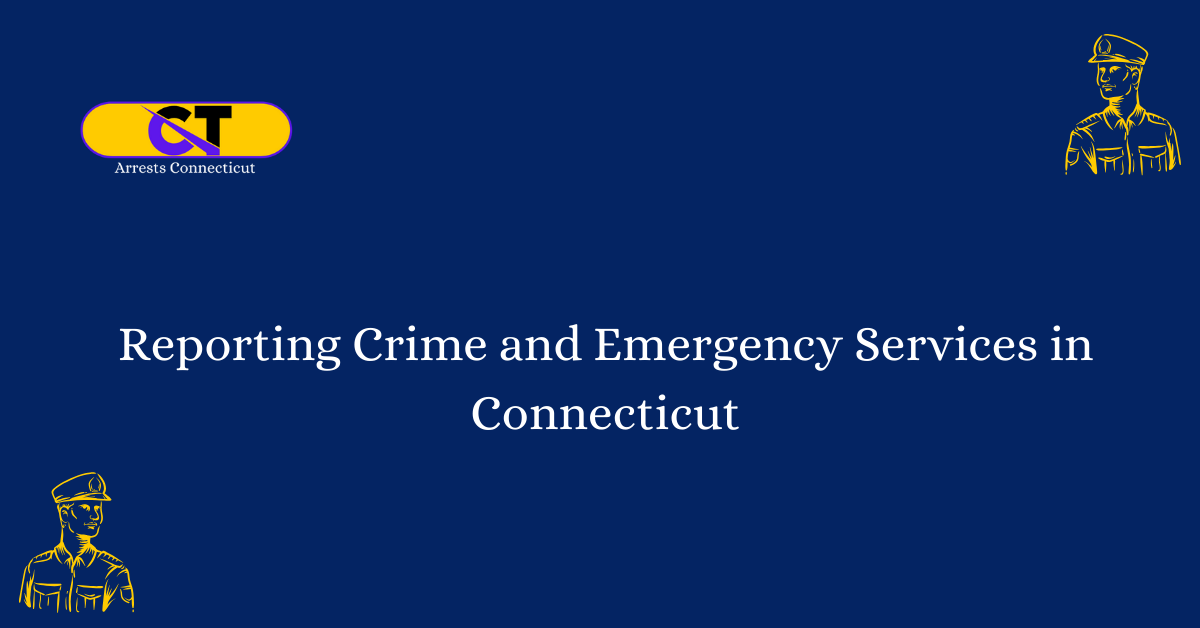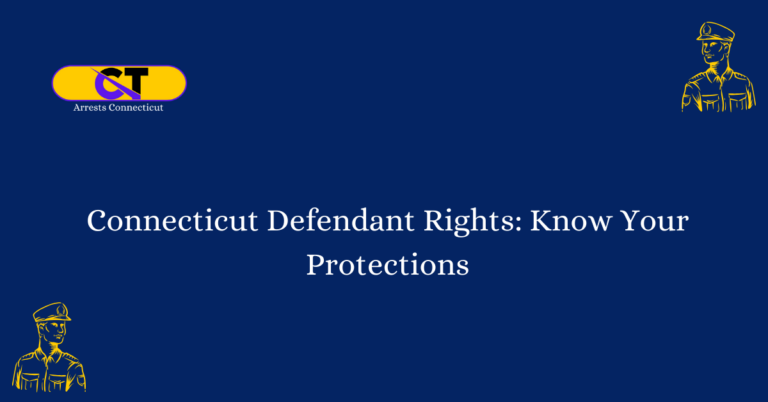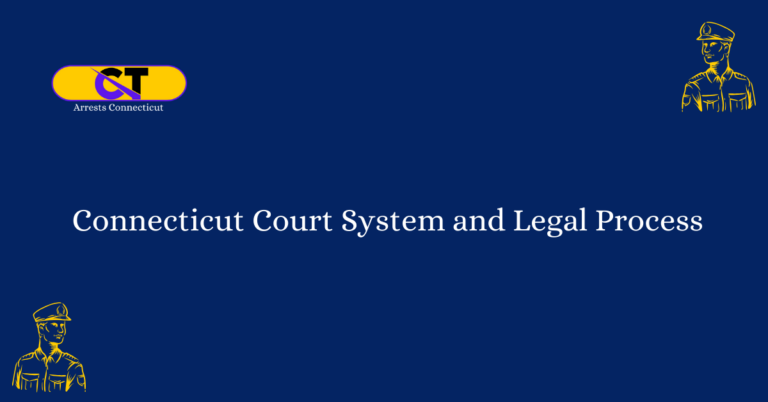Reporting Crime and Emergency Services in Connecticut
Connecticut residents have access to a comprehensive network of crime reporting and emergency services aimed at ensuring the safety and well-being of the community. Understanding how to report crimes and emergencies, as well as being aware of available services, is crucial for both residents and visitors. In this comprehensive data, we will delve into the various avenues for reporting crimes, emergencies, and the array of services offered in the state.
Emergency Services Hotlines
In Connecticut, residents can swiftly report emergencies by dialing 911. This number is the primary point of contact for police, fire, medical, and other emergency services. Dispatchers are trained to handle a variety of situations and can quickly deploy the appropriate resources to the scene.
Non-Emergency Reporting
Not all situations require immediate attention, but reporting non-emergency incidents is equally important. Many police departments in Connecticut have dedicated non-emergency hotlines for situations that don’t pose an immediate threat. Familiarizing yourself with these numbers can help streamline the reporting process and ensure that emergency lines remain available for critical situations.
Online Reporting Systems
Several law enforcement agencies in Connecticut offer online reporting systems for certain types of incidents. These platforms allow residents to submit reports for non-emergency situations at their convenience. Online reporting is often available for crimes such as theft, vandalism, and non-violent offenses.
Crime Stoppers Programs
Connecticut residents can also provide anonymous tips about criminal activity through Crime Stoppers programs. These initiatives encourage citizens to report information that may aid law enforcement in solving crimes. Anonymous tip lines, websites, and mobile applications are common channels for submitting tips.
Community Policing Initiatives
Many towns and cities in Connecticut actively engage in community policing initiatives. These programs emphasize collaboration between law enforcement and the community, encouraging residents to build relationships with local officers. Community members can attend meetings, participate in neighborhood watch programs, and collaborate with law enforcement to address and prevent crime.
Specialized Services
Connecticut offers specialized services to address specific needs within the community. This includes victim support services, mental health resources, and assistance for vulnerable populations. Various organizations collaborate with law enforcement to ensure a holistic approach to community safety.
Emergency Preparedness and Response
Beyond reporting, it is essential for residents to be informed about emergency preparedness and response plans. Connecticut has established comprehensive strategies to deal with natural disasters, public health crises, and other emergencies. Understanding these plans and knowing how to access information during emergencies is vital.
Educational Programs
Public awareness and education play a crucial role in preventing and addressing crime. Connecticut law enforcement agencies often conduct educational programs in schools, businesses, and community centers to inform residents about safety measures, crime prevention strategies, and available resources.
FAQs
What services does Reporting Crime and Emergency Services in Connecticut provide?
Reporting Crime and Emergency Services in Connecticut offer immediate response through 911, non-emergency reporting options, and Crime Stoppers programs. Specialized services, victim support, mental health resources, and educational programs contribute to a comprehensive approach to public safety.
How can I stay informed about the latest crime trends and emergency situations in my area?
With our comprehensive reporting system, you can stay informed about the latest crime trends and emergency situations in your area. Whether it’s a neighborhood watch program, tips on personal safety, or updates on local law enforcement efforts, we got you covered. Our goal is to empower you with the information you need to make informed decisions and take proactive measures to stay safe.
Are the crime reports and emergency updates provided by Reporting Crime and Emergency Services in Connecticut reliable?
Crime reports and emergency updates from Reporting Crime and Emergency Services in Connecticut are reliable, backed by strict protocols, advanced technology, and collaboration with law enforcement for accurate information dissemination.
Can I access the reporting system and emergency updates on my mobile device?
Absolutely! Our reporting system and emergency updates are designed to be accessible on various devices, including mobile phones and tablets. We prioritize creating a responsive layout for seamless user reading, so you can conveniently access the information you need anytime, anywhere.
How often are the crime reports and emergency updates updated?
Crime reports and emergency updates from Reporting Crime and Emergency Services in Connecticut are updated in real-time or with minimal delay, ensuring the public receives current and accurate information for effective public safety.
How can I contact Reporting Crime and Emergency Services in Connecticut for additional assistance or inquiries?
To contact Reporting Crime and Emergency Services in Connecticut, use the local 911 emergency hotline for immediate assistance. Non-emergency inquiries can be directed to local law enforcement agencies’ non-emergency hotlines or online reporting systems for added convenience. Community outreach programs may also offer direct contact for information and assistance.
Conclusion
Connecticut’s commitment to public safety is evident through its robust reporting mechanisms, emergency services, and community engagement initiatives. By understanding how to access these resources and actively participating in community safety efforts, residents can contribute to a safer and more secure Connecticut for everyone. Stay informed, be vigilant, and work together to build a resilient and secure community.







